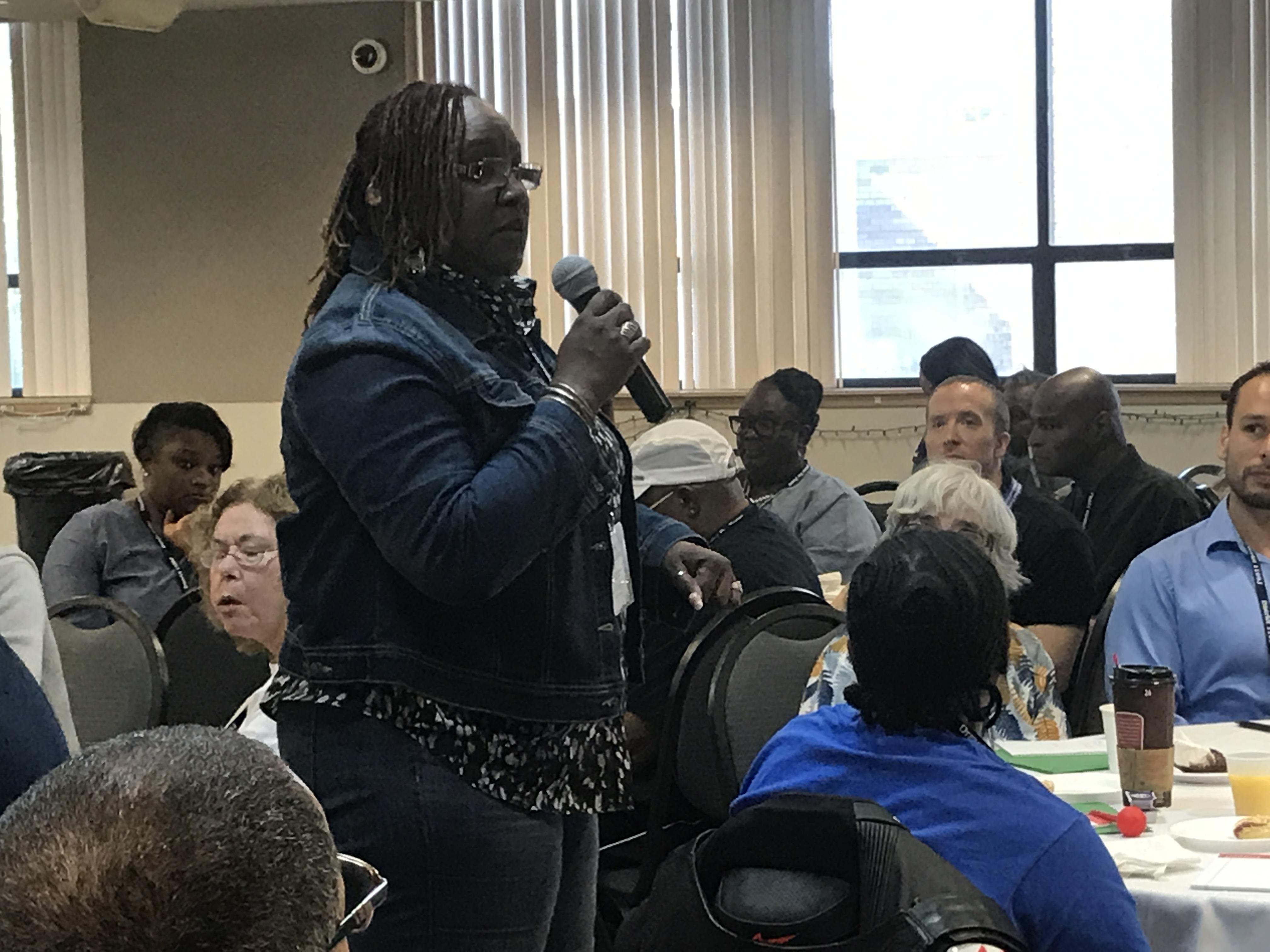Nearly a hundred union and nonunion behavioral health workers gathered at the offices of District 1199J, NUHHCE for a summit the union hosted along with AFSCME New Jersey Council 63 and the United We Heal campaign. There they shared best practices for the challenges they face across the industry and developed specific solutions that can be used to solicit the funding necessary to meet these challenges.
The gathering earlier this month not only allowed participants a chance to discuss ways to tackle some of the toughest issues facing the Garden State, it provided an opportunity for the United We Heal campaign to lift standards across the industry by uniting workers not just at one worksite but across regions. It also shows how AFSCME is the union for behavioral health workers wanting to improve their worksites.
“This is a huge step forward because this is really coming together as an industry to talk about our shared future and how we, as a team, turn this shared focus into commitment and action,” said Dana Lugassy, a psychiatric social worker at the George J. Otlowski, Sr. Center for Mental Health Care and president of AFSCME Local 3460.
“No matter where you work, funding has gotten tighter while the needs have only increased,” she added. “But, today our colleagues at nonunion employers got a taste for how having a strong voice through AFSCME gives folks like me a chance speak up for positive change without fear that it could cost us our jobs. So it was educational in that aspect, too.”
Because the opioid crisis is having a dramatic impact on the funding and delivery of behavioral health services, summit participants took part in a continuing education seminar. Presented by Rutgers University’s Center of Alcohol Studies and the School of Social Work, the three-hour course will help participants with their certification and licensing requirements.
“When people in our industry want to know what difference having a union makes, this is exactly what I point to – helping us get the relevant and timely training on current issues we need,” said Herne Lacoste, a case manager at the Delaney Hall Detention Facility and a District 1199J delegate.
The burnout caused by the mental, physical and emotional stress caused by working in behavioral health is one of the biggest causes why providers quit. So the seminar included a guided discussion of how to focus on the job without sacrificing health and safety.
“The type of work we do is not just going in and checking some box of care but it really is a holistic approach that, in my opinion, resembles social justice work – and that can take a lot out of you day after day,” said Patricia Garcia, a licensed clinical social worker at Hoboken University Community Mental Health and a member of District 1199J. “Learning from people who are facing the same challenges I am to tackle burnout and personal stress so I can keep going was really the best part of this day.”
Participants left energized about the direction that the behavioral health industry in New Jersey is headed.
“By advocating for change and raising standards through the United We Heal campaign, we can make a real difference for patients,” said Lugassy. “And by simultaneously uniting more voices in our union we can ensure providers can have a real career delivering that care to our communities in need.”

